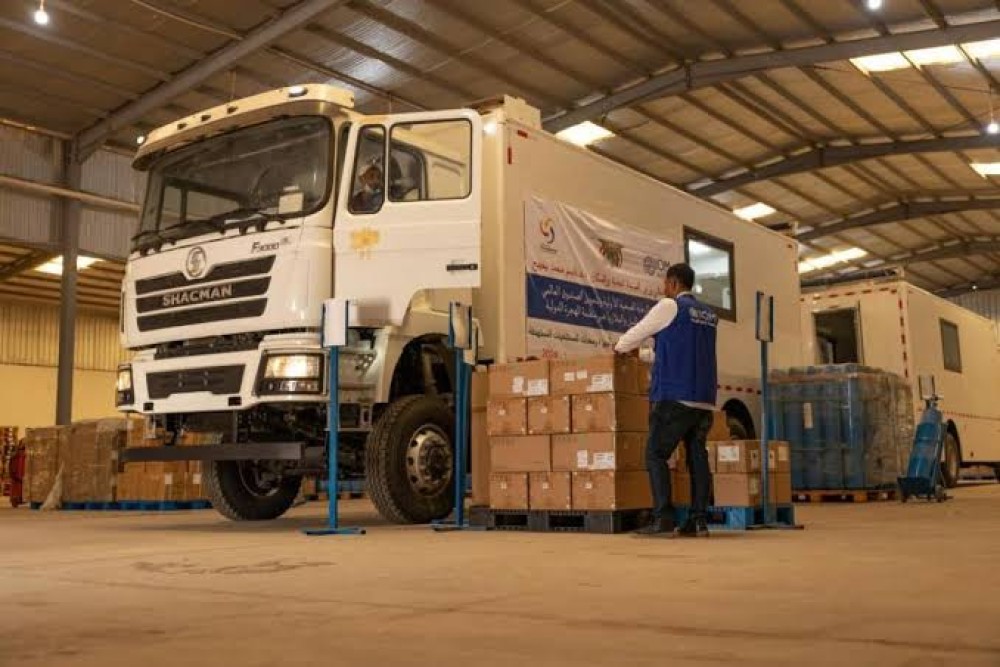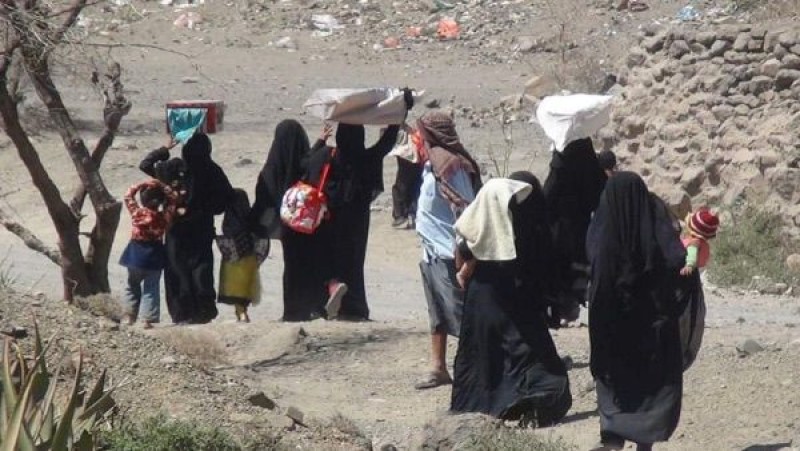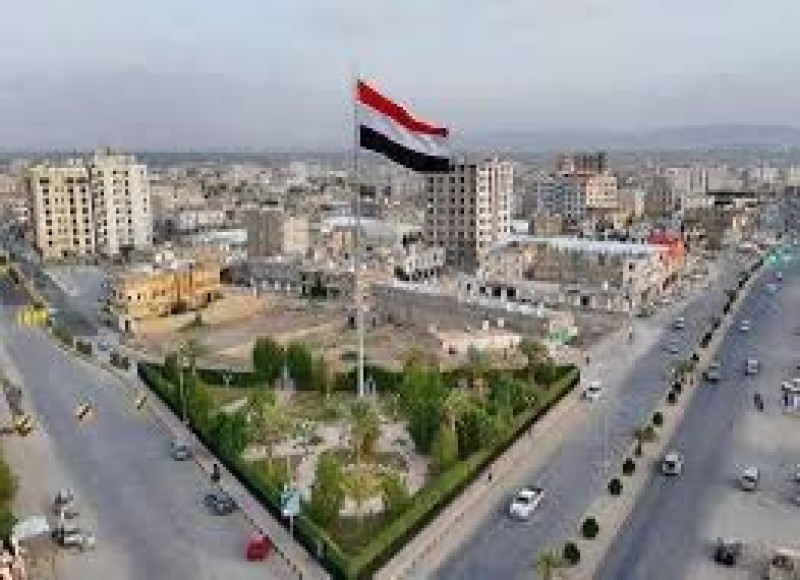IOM and Global Fund Boost Yemen’s Health System with USD 2 Million Medical Equipment


On July 22, the International Organization for Migration (IOM), in partnership with the Ministry of Public Health and Population (MoPHP) and the Global Fund, inaugurated the delivery of crucial medical equipment to strengthen Yemen’s healthcare system. The ceremony, attended by IOM and key representatives from the government’s health sector, was held at the IOM warehouse in Aden and marks a major advancement in addressing the country’s urgent health challenges.
“By providing advanced medical equipment and support to key healthcare programmes, we are reinforcing our commitment to improving health outcomes for some of the most vulnerable populations,” declared Matt Huber, Acting Chief of Mission with IOM Yemen. “Our partnership with the Global Fund and the MoPHP underscores our dedication to not only addressing immediate needs but also strengthening Yemen’s healthcare infrastructure for the long term.”
Yemen is experiencing a severe health crisis, with approximately 17.8 million people in need of health assistance. Only 50 percent of hospitals across the country are fully or partially operational, many of which face challenges such as staff shortages, inadequate supplies, and outdated equipment. Compounded by frequent power outages and financial constraints, these issues significantly impair the delivery of essential healthcare services to more than 20 million people.
The Global Fund’s Middle East Response Phase 3 (MER 3) programme operates across Iraq, Jordan, Lebanon, and Yemen, and focuses on delivering comprehensive HIV, tuberculosis (TB), and malaria services, tailored to the unique challenges of each country. The programme aims to address the complex public health needs arising from ongoing conflicts and humanitarian crises, ensuring that essential services reach vulnerable populations such as migrants, internally displaced persons, and host communities.
Throughout its implementation, MER 3 has achieved significant milestones, including a substantial reduction in malaria cases in Yemen and notable improvements in TB care and treatment across the region. The programme has enhanced health infrastructure, supported local health systems, and provided crucial services to millions, despite the challenging operating environments.
In 2023, as part of MER 3 and in collaboration with Yemen’s MoPHP, IOM achieved significant milestones, including testing 17,500 people for HIV and enrolling 623 in Antiretroviral Treatment (ART) – available exclusively through the Global Fund programme. Through the initiative, 36,000 individuals were screened for tuberculosis (TB), diagnosing and treating 11,123 cases. In malaria control, health facilities managed over 1 million suspected cases, while IOM trained 3,000 healthcare workers and improved data reporting through the Electronic Disease Early Warning System (eDEWs).
The medical equipment procured through this initiative, valued at approximately USD 2 million, includes two mobile X-ray vans equipped with portable X-ray machines featuring AI technology, 20 blood gas machines, 30 infusion pumps, 2,200 oxygen cylinders, and 40 mechanical ventilators.
The equipment will be distributed to public hospitals and health facilities across Yemen, with a particular focus on supporting patients in intensive care units. These advanced tools are set to significantly enhance healthcare delivery by improving treatment, enabling precise diagnosis, and contributing to better overall health outcomes across the country.
In 2023, IOM’s Global Fund activities, implemented nationwide in Yemen, reached 3.8 million people through comprehensive disease management and prevention. These efforts have bolstered Yemen’s healthcare infrastructure, provided vital services to vulnerable populations, and led to a significant reduction in malaria cases along with notable improvements in TB treatment and reduction.

Aden — The International Organization for Migration (IOM) reported that more than 24,000 people have been internally displaced in Yemen since…

MARIB — Security sources reported that police in Marib governorate have opened investigations into two separate suicide incidents that occurr…

Hodeidah — Two members of the Iranian-backed Houthi militia were killed and five others wounded in a landmine explosion near Hodeidah airport…